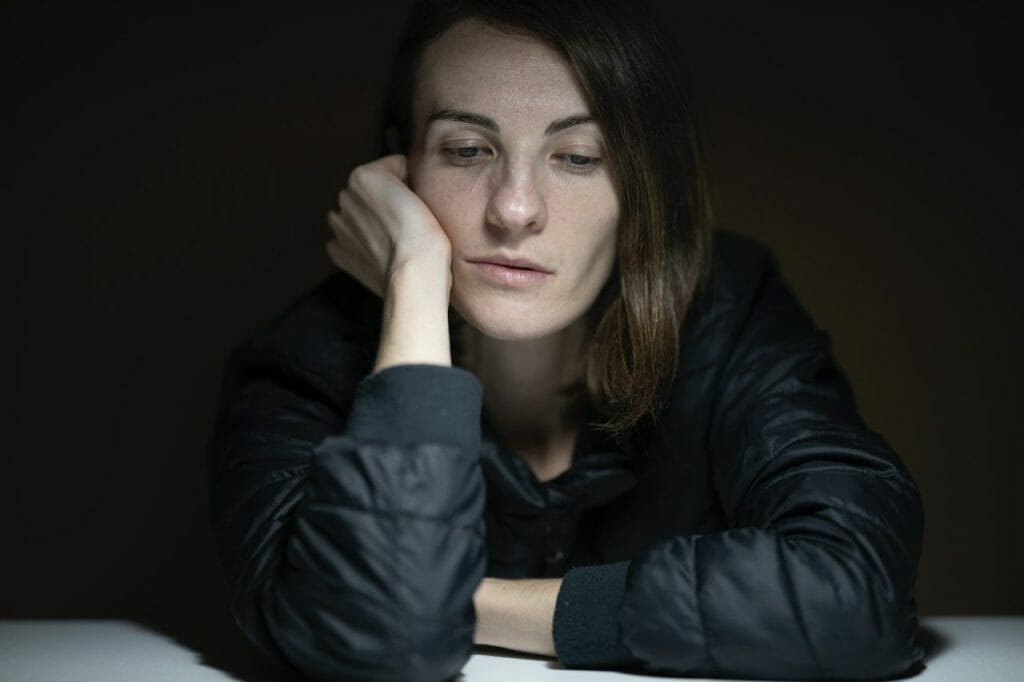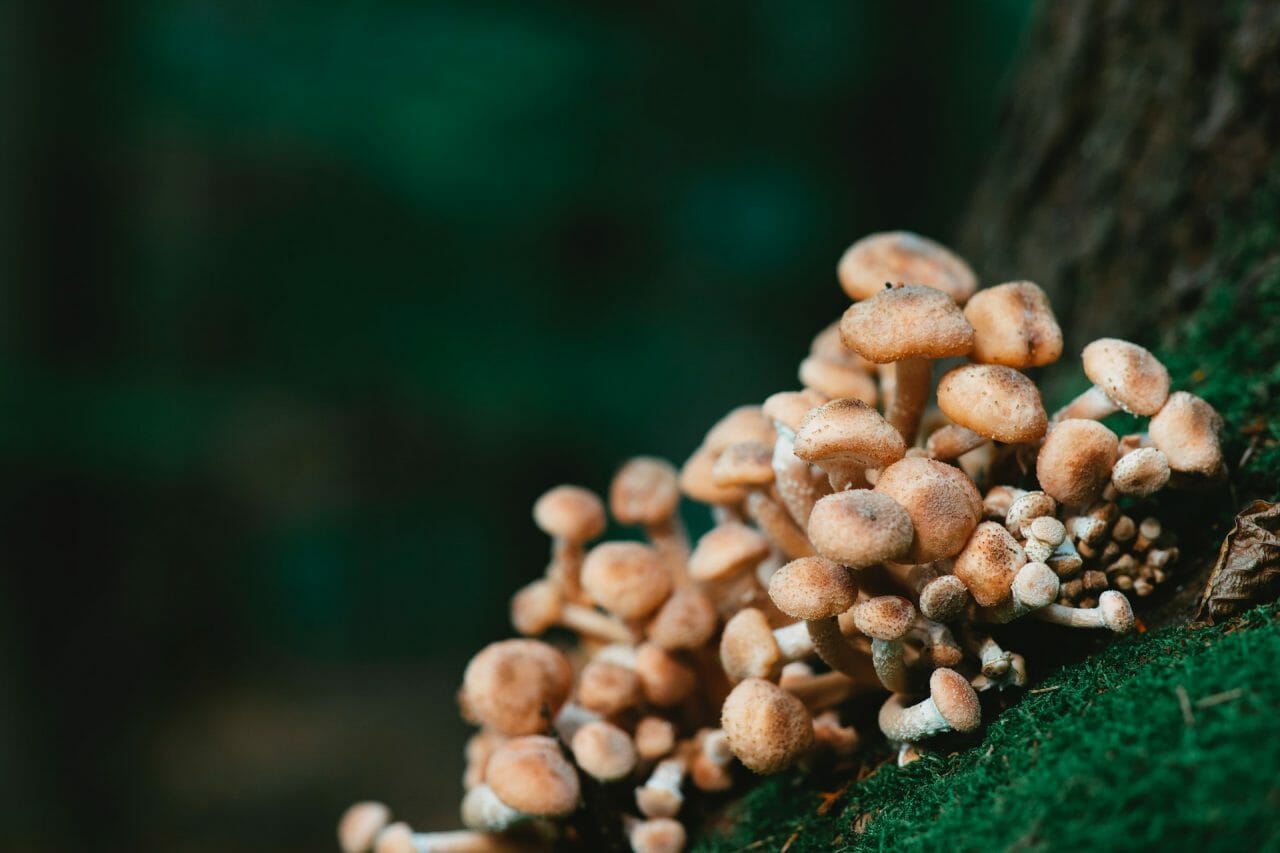According to the World Health Organization (WHO), depression impacts more than 264 million people worldwide.
Despite the effectiveness of conventional treatments, they sometimes fall short in addressing the complex nature of depression. This issue has spurred interest in alternative therapies. One such emerging treatment involves the use of psilocybin-rich mushrooms, obtained from a mushroom dispensary, to manage depression.
Let’s delve into the world of mushroom dispensaries, their role in alleviating depression, and the compelling statistics that underscore their potential to revolutionize our approach to this pervasive mental health issue.
Main Takeaways:
- Mushroom dispensaries offer an alternative to traditional depression treatment with psilocybin-rich mushrooms.
- Research shows that psilocybin can result in significant and enduring alleviation of depressive symptoms.
- Psilocybin therapy is part of a novel trend revolutionizing mental health care.

Understanding Psilocybin and its Therapeutic Applications
Psilocybin is a naturally occurring compound found in certain mushroom species, often referred to as “magic mushrooms.” Once consumed, the body converts psilocybin into psilocin, which interacts with the brain’s serotonin receptors. This interaction induces significant shifts in perception, mood, and consciousness, which are commonly linked to psilocybin use.
Research into psilocybin’s potential as a treatment for depression has unveiled significant findings. Clinical trials and studies show that a single, meticulously administered dose of psilocybin can lead to substantial decline in depressive symptoms. Patients have reported profound and long-lasting effects on their mental health and overall quality of life.
These findings have accelerated interest and funding in researching psilocybin as a distinctive treatment option for depression, especially for those who haven’t experienced success with conventional treatment methods.
The Potential of Magic Mushrooms in Depression Treatment
Dispensaries
Psilocybin-containing mushrooms, commonly known as magic mushrooms, have recently garnered attention due to their potential to alleviate depression symptoms. Let’s explore the different types of magic mushrooms and delve into their potential benefits for depression.
| Magic Mushroom Type | Characteristics | Potential Depression Benefits | |
| Golden Teacher | A popular psilocybin mushroom characterized by its golden cap. | Possibly reduces depressive symptoms and promotes emotional wellness. This mushroom type may foster introspection and self-reflection, aiding individuals in gaining new insights on their depression. Some users report feelings of unity and interconnectedness, which may address the sense of isolation often associated with depression. | |
| Psilocybe Cubensis | One of the most commonly encountered magic mushroom species. | Known to induce positive mood changes and altered life perspectives. It may enhance emotional processing and help individuals tackle the root causes of their depression. The altered consciousness it produces can help users break away from fixed thought patterns, cultivating a more optimistic outlook. | |
| B+ | Identified by its large, bulb-like fruiting bodies. | Potentially results in significant and long-term reductions in depressive symptoms. Users commonly report a newfound understanding and clarity about their emotions and life circumstances. The therapeutic journey may assist in processing suppressed emotions and trauma, offering relief from depression. | |
| Liberty Cap | These are small, cone-shaped mushrooms found in various regions. | Noted for generating powerful emotional experiences that may have a positive impact on depression. Users of Liberty Cap often report heightened sensitivity and empathy, fostering emotional healing and connectivity. The profound and immersive nature of the psychedelic journey may help individuals understand the root causes of their depression. | |
| Penis Envy | Notable for its unique, phallic-like shape. | Associated with deep insights and changes in depressive thought patterns. Users frequently experience ego dissolution, allowing them to confront their depression without the usual constraints of their identity. The intensity of the experience may lead to therapeutic breakthroughs, resulting in lasting improvements in mental health. | |
| Blue Meanie | A potent strain identified by its bluish | Blue Meanie is notable for its deep blue hue. | It’s believed to induce a state of tranquility and calmness, possibly helping to alleviate symptoms of anxiety and depression. Many users have reported reaching a state of inner peace and emotional release during their experiences with Blue Meanie, which could potentially boost mental health. This strain, recognized for its mild yet introspective traits, may be particularly suitable for those seeking a less overwhelming psychedelic experience for therapeutic purposes. |
The Role of Magic Mushroom Dispensaries in Treating Depression
Magic mushroom dispensaries or shops play a crucial role in treating depression, offering a controlled and regulated environment for those searching for potential therapeutic solutions.
The Responsibility of Health Canada
In Canada, Health Canada is the federal department responsible for ensuring the safety, effectiveness, and quality of therapeutic products like the psilocybin found in magic mushrooms.
Approval of Therapeutic Products
Health Canada has recently granted exemptions and approvals for the use of psilocybin in particular clinical and research settings for certain medical conditions, including depression. This policy shift indicates a growing recognition of the potential therapeutic uses of psilocybin.
Potential Therapeutic Uses
Magic mushroom shops offer a potentially innovative and promising therapeutic route for individuals struggling with depression. With appropriate authorization and under specific conditions, psilocybin therapy can be used to alleviate depression symptoms.
A Regulated and Monitored Environment
Magic mushroom dispensaries provide a regulated and monitored environment for individuals seeking psilocybin therapy, ensuring that the therapy is conducted safely and under the supervision of trained professionals.
Compliance with Health Canada Regulations
Dispensaries are mandated to adhere to Health Canada’s regulations and guidelines when providing psilocybin-based products for therapeutic use. They play a critical role in maintaining compliance and ensuring therapy is conducted responsibly and ethically.
Navigating Psilocybin Therapy via a Mushroom Shop
Embarking on psilocybin therapy through a mushroom shop can potentially be a transformative and beneficial experience. However, it’s essential
It’s imperative to proceed with a sense of responsibility and mindfulness. Here are some recommended steps to manage this process effectively:
- Comprehensive Research: Embark on your journey with an in-depth investigation on psilocybin therapy and the particular mushroom store you’re planning to visit.
- Seek Professional Guidance: Before deciding on psilocybin therapy, consult a mental health professional or a therapist who specializes in psychedelic-assisted treatment. They can assess your suitability for this kind of therapy and provide useful recommendations.
- Choose a Trustworthy Store: Investigate reviews, validations, and evidence of compliance with local regulations.
- Understand the Process: Familiarize yourself with the entire therapy process, from preparation and the psychedelic experience to post-session integration. Knowing what to expect can reduce anxiety and enhance therapeutic outcomes.
- Mental and Emotional Readiness: Prepare yourself mentally and emotionally for the experience. Set clear intentions for your therapy session, and be ready to confront any challenging emotions or thoughts that may arise.
- Ensure a Safe Environment: Ensure that the mushroom store provides a secure and comfortable environment for your therapy session. This should include appropriate lighting, music, and the presence of trained facilitators to assist you if needed.
- Follow Dosage Instructions: Adhere to the dosage recommendations from the mushroom store or your healthcare provider. Avoid self-medication or using unidentified substances, as they may pose risks.
In Conclusion
Mushroom stores offering psilocybin therapy have emerged as a potential alternative for treating depression. Even though the legal and regulatory landscape varies among these stores, the growing body of research and firsthand experiences highlight their potential to alleviate depressive symptoms and offer individuals new perspectives on their mental health.
As the field of psychedelic-assisted therapy continues to grow, the role that mushroom stores play in transforming the landscape of depression treatment provides hope for those seeking novel mental health solutions.
Frequently Asked Questions
How do I find a reliable mushroom dispensary for depression treatment?
To find a reliable mushroom dispensary, rigorous research is crucial. Look for stores that comply with local regulations and safety standards. Consult with professionals in the field for advice, and always prioritize your personal safety and comfort.
You should seek advice from healthcare experts or those who have previously achieved success with their treatments. Examine the dispensary’s credentials, including the qualifications of their operators and their adherence to ethical standards.
How long do the therapeutic effects of psilocybin therapy last in the treatment of depression?
The therapeutic effects of psilocybin therapy can vary in duration from one person to another. While some people may experience immediate relief, others may notice improvements over time. Studies have shown that the benefits can last for several weeks to months after just one session. However, the duration of these effects can also be influenced by ongoing integration and support.
Can psilocybin therapy be used solely for depression treatment, or should it be combined with other therapies?
Psilocybin therapy is usually incorporated into a comprehensive treatment plan for depression. It can be combined with traditional therapies like psychotherapy, counselling, or medication to enhance its effectiveness. Treatment approaches should be customized to suit individual needs and should be guided by the advice of healthcare professionals.
What other magic mushroom products are available for the treatment of depression?
In addition to traditional magic mushrooms, there are other magic mushroom products available for depression treatment. These include psilocybin microdosing capsules, psilocybin-infused edibles such as chocolates or gummies, liquid psilocybin extracts or tinctures, and psilocybin nasal sprays. These alternative forms of psilocybin offer a variety of dosing options and methods of administration, including precise microdosing for subtle mood enhancements.
Related Article:





